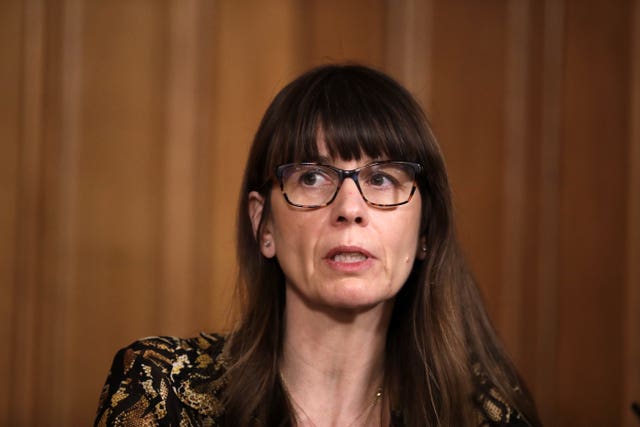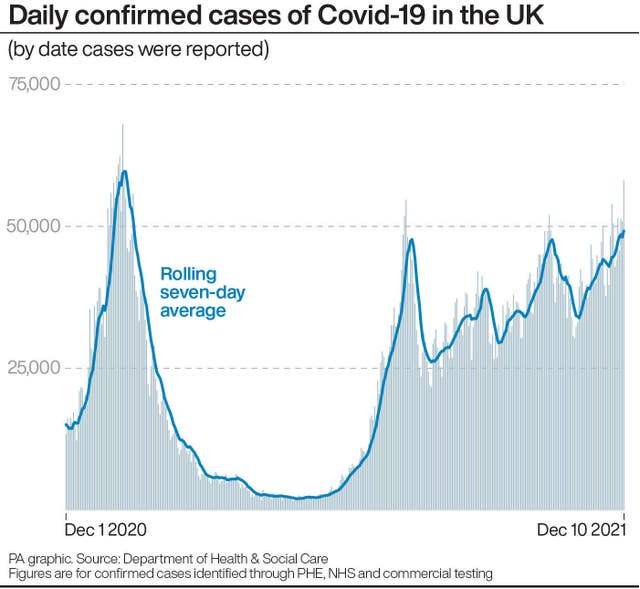More coronavirus (Covid-19) measures may be needed to tackle the fast-spreading Omicron variant. And the UK is facing an “inevitable” large wave of infections, the UK Health Security Agency’s (UKHSA) chief medical adviser has said.
Reduced contact advised
Dr Susan Hopkins said people will have to reduce social contact as much as possible. And she added that lateral flow tests should be used before going out to meet anyone. Her remarks came as education secretary Nadhim Zahawi said the UK is in a “race” to get the coronavirus booster to eligible adults “as quickly as possible”.
Zahawi said there are people in hospital with Omicron, while Hopkins also confirmed that they are getting reports of individuals going into hospital over the last few days with the variant. She told BBC’s The Andrew Marr Show:
We’re also seeing hospitals diagnose more and more people coming through their emergency departments, and we expect to see increases in that number. I have not had a report of death yet.
But it’s really important to remember it is just over two weeks since we first detected the cases in the United Kingdom, and that hospitalisations start to be seen in about two weeks and deaths usually at three to four weeks.
I think it’s too early to make any assumptions at this point in time.

Zahawi told Sky News’ Trevor Phillips On Sunday programme:
It is now a race between the booster and that protection, and the Omicron variant.
Asked what action is likely to be taken to increase the rate of booster jabs, Zahawi said:
There is absolutely a plan, and the Prime Minister will be saying more on this.
He said the booster programme has been opened to those over the age of 30 and a team of GPs, pharmacies, the military and volunteers is being mobilised to deliver it.

“Inevitable”
Speaking about what is ahead, Hopkins said:
It’s inevitable that we’re going to see a big wave of infections. What we are not yet clear on, and which is what we are basically making sure people go out and get their vaccination for, is how much that will affect hospitals.
She added:
I think we will have to reduce our social contacts as much as we can, which is the working-from-home guidance.
She said more coronavirus measures may be needed, adding that the government has “very difficult” decisions ahead. She said:
I think that the restrictions that the Government have announced are sensible. I think that we may need to go beyond them. But we’ll need to watch carefully what happens with hospitalisations
According to overall UK Omicron case numbers, 11 December’s figure of 1,898 confirmed cases was up 50% on 10 December’s figure when the total was 1,265.
New modelling suggests that, under one scenario, almost twice the number of coronavirus patients could be admitted to hospital compared with last year due to Omicron. Experts from the London School of Hygiene & Tropical Medicine (LSHTM) calculated figures which say a large wave of infections could occur over the next few months if tougher measures aren’t brought in. The study has not yet been peer-reviewed and assumes a similar level of virulence as the Delta variant.
#OmicronVariant latest information
633 additional confirmed cases of the #Omicron variant of #COVID19 have been reported across the UK.
The total number of confirmed COVID-19 Omicron cases in the UK is 1,898. pic.twitter.com/407uAW76Pp— UK Health Security Agency (@UKHSA) December 11, 2021
Analysis by the UKHSA has found that the AstraZeneca and Pfizer vaccines provide “much lower” levels of protection against symptomatic infection with Omicron compared with Delta. It also said a booster dose gives around 70% to 75% protection against symptomatic infection with Omicron. And it urged people to have their boosters.
All eligible adults can get their booster jab three months (91 days) after their second dose. They can book their booster 61 days after their second dose using the NHS national booking system.
The national booking system will open to everyone aged 30 to 39 in England from 13 December.









